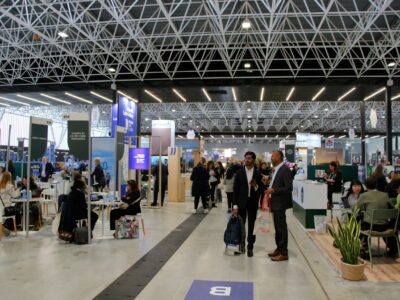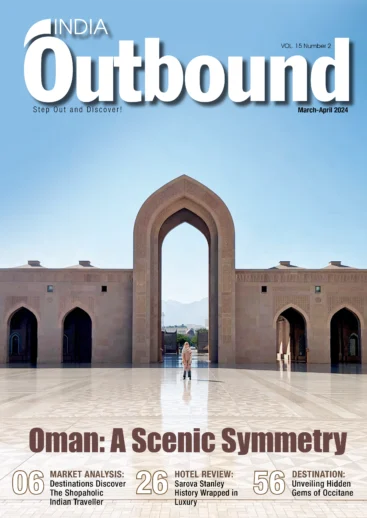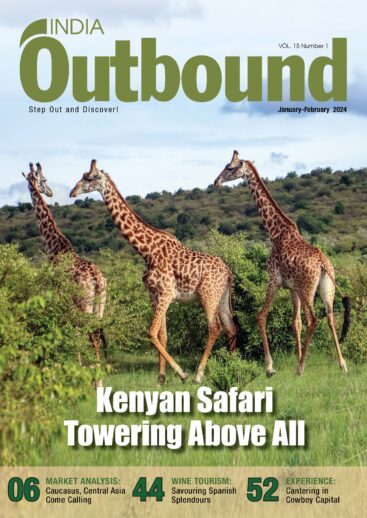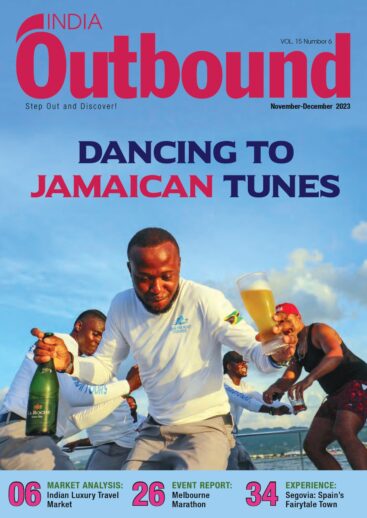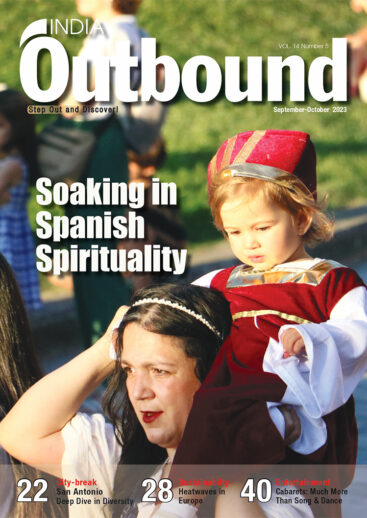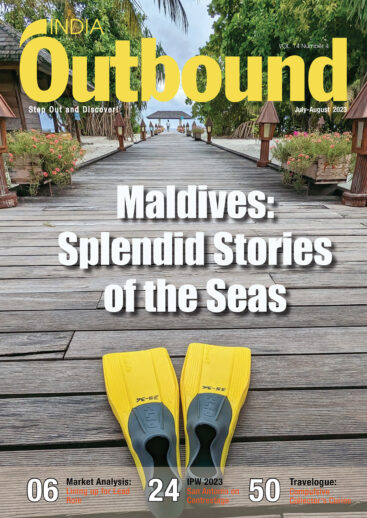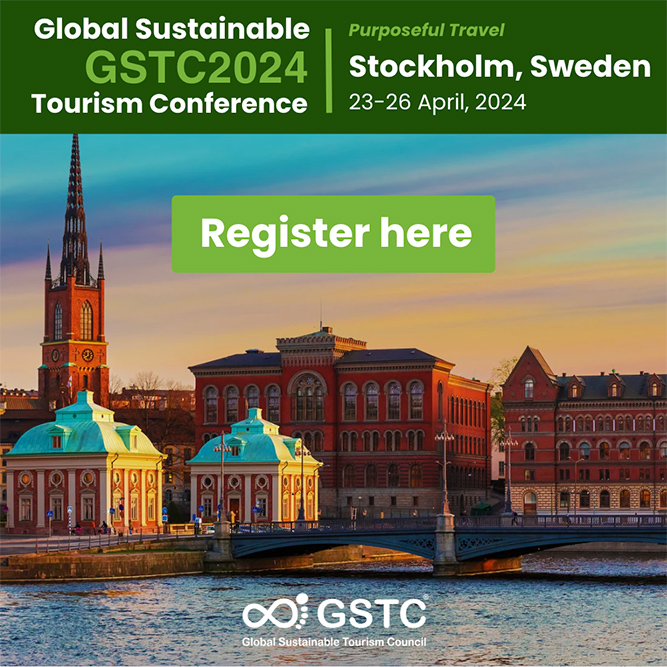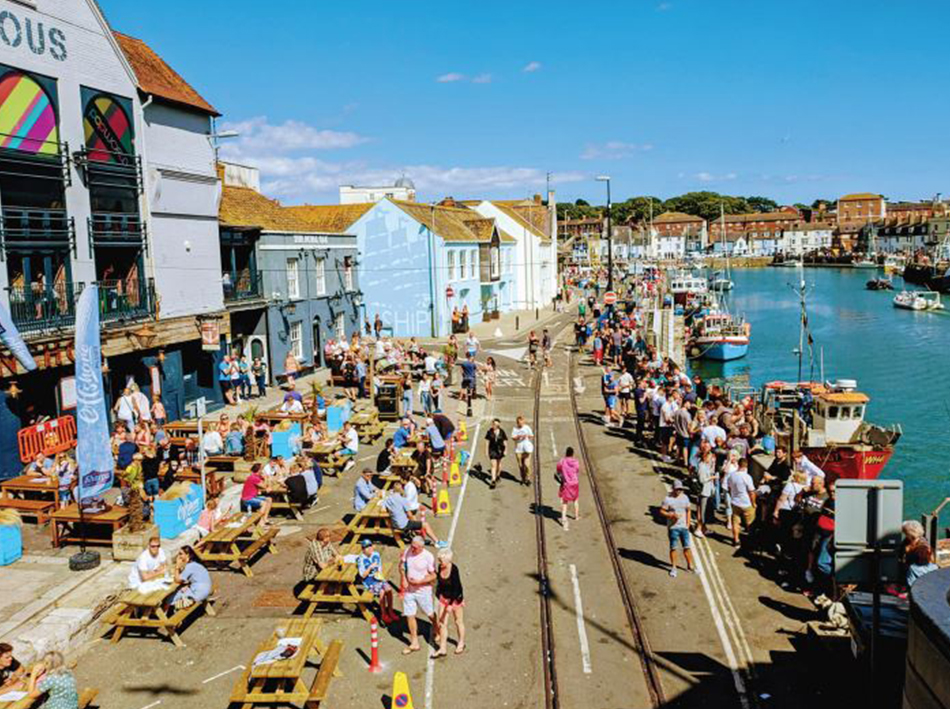
It is crucial for countries to lift travel restrictions immediately to boost tourism as has been done by United Kingdom (pictured above) (IO Photos)
On February 28, Ireland became the 10th nation in the world to remove all restrictions on travel from India, including the need for vaccinations or a negative Covid-19 PCR test. A couple of weeks later, France will follow suit and a number of other countries in Europe, Asia and Africa are also likely to end travel restrictions linked to Covid-19, over two years after global travel and the outbound travel from India was severely disrupted by the numerous restrictions imposed by practically all countries in response to the pandemic.
Two full years of disruption cost hundreds of millions of people in the travel industry their jobs and well over USD 4 trillion in losses as the entire ecosystem – from airlines, travel agents, transport companies to hotels and tourism sites – collapsed and stayed almost entirely shut for the entire period.
Global leaders have been experimenting, often without any logic or scientific basis, with various rules to deal with the pandemic, making the chance of revival of travel, even in phases, a nightmarish experience for the travel industry professionals as well as travellers. The uncertainties governing the rules of travel have often been cited by travellers as an even bigger hurdle than the increased cost of travel or even the chances of infection while travelling.

Jyoti Mayal, President, TAAI
While continuously changing the rules, the political leaders ignored pleas by the travel industry for a more stable regime of rules and phased reopening of the market rather than waiting for a total end of the pandemic. The industry highlighted repeatedly that closure of borders and too many restrictions on travel could do irreparable harm to the sector, which is one of the biggest employers in the world. One of the bodies of the industry that has consistently been at the forefront of calls to reopen borders is the Travel Agents Association of India (TAAI) which is the oldest and largest association of the industry in India.
“As president TAAI, I have said many a times, shutting things and putting restrictions hasn’t really worked in stopping the virus from spreading. On the contrary the long extension has massively made people suffer financially, depriving them of work and jobs and driving them towards frustration, depression and many other challenges. Initially we were unaware, did not know how to react or treat Covid-19, resulting in lockdowns and life casualties. With a very successful vaccination drive we now need to overcome fear and learn to adapt to a new normal. Precaution is the best cure, so we all need to learn to be safe and live hygienically. Timely opening would have been a wiser decision to sustain and recover quicker,’’ Jyoti Mayal, president of TAAI, tells India Outbound.
Accelerated reopening offers glimmer of hope
Though it is certainly late, the reopening of borders around the world seems to progressing rapidly. In barely a month, dozens of countries have either entirely removed all restrictions on travel or made it far simpler for people to travel from around the world. The move towards border reopening began in February when Denmark and Norway became the first European Union nations to end all restrictions related to Covid-19 pandemic, saying it was no longer a socially critical disease and that it had to be treated as endemic. Within a day, Sweden and Spain had joined the move towards declassifying Covid-19 as a pandemic that needed special restrictive measures any longer.
The shift in approach towards the pandemic was music to the ears of the global travel industry that had long asked for removal of travel restrictions, especially in countries where the vaccination has progressed to a reasonable level and where those remaining unvaccinated are almost entirely so by choice rather than lack of availability of vaccines. Travel industry stakeholders wholeheartedly support the decision to treat the illness as endemic and not pandemic, adding that the governments need to find ways on how to treat the infection rather than trying the near-impossible feat of zero infections.

Easing of border controls has boosted travel (IO Photos)
‘‘Covid-19 now certainly needs to be treated as an endemic and it is a conscience decision taken, post the havoc it has created, after long two years. Every pandemic has a life cycle and over this long period we have suffered, learnt to handle it by adopting correct protocols, gained knowledge about the virus thus I think it is a very wise decision and as we gain confidence herd immunity will keep getting stronger. It is not that the Covid-19 virus has been eradicated but we need to learn to live with it, be aware of it and treat it. We need to come up with more effective treatment, build on our immunities and keep certain hygiene protocols in mind. No matter how many restrictions and curbs we put, the virus will continue to spread and infect. It is a way of life to take in your stride, like any other flu or virus, and we should learn to live with it. The countries need to open borders, people need to get back to work, the economies need to revive or else we will die quickly of hunger than the virus. Normal living needs to be supported and motivated by the counties for their citizens,’’ says Mayal, who has been a very vocal critic of total and prolonged clampdowns that have brought the global economy, notably the travel and tourism industry to its knees.
Cost of closure
The closing off of borders and imposition of myriad conditions on people moving outside their homes, let alone, outside their city or country, has come at a huge cost to the world, as is evident now. Certainly, the strict restrictions imposed initially were justified due to several factors. First and foremost, it was a new disease that the world was totally unfamiliar with. Combined with its novelty was the unprecedented contagiousness of the virus which spread across the entire globe and infected hundreds of millions of people within months.
And while various governments generously funded pharmaceutical firms and labs for conducting urgent research into the virus and develop a vaccine, it was perhaps justified to impose certain limits on the social lives of people, which was the objective of the lockdowns, though some of them clearly went overboard in literally locking the whole countries and their economies down, putting hundreds of millions of families at risk of poverty.
Many governments, especially in the rich world, did compensate, at least partly, for the loss of wages for most people to minimise the economic burden. However, the poor in most developing countries of the world and many poor in the rich world were affected seriously by the pandemic and the restrictions imposed by it.
Over the following two years, the governments in most countries tried to juggle, with little success, between easing of restrictions as the case counts fell and re-imposing them when the virus hit back. But in the second half of last year, by when most of the developed world already had been jabbed by appropriate vaccines, not once but twice and in some cases even thrice, it was perhaps time to review the restrictions and the pandemic in a comprehensive manner.
Most of Europe and many other rich nations as well as countries like China, India and a few others have reached a stage where a large majority, if not 90 pc and above, of the population has been fully vaccinated and there is little reason to keep them locked in or impose restrictions on their social and economic lives anymore.
The last two years have been very tough on practically every single socio-economic class, perhaps with the exception of the multimillionaires and billionaires who have seen their wealth explode through the pandemic. Though the affluent have managed to stay relatively unaffected by the pandemic, to the extent possible, the same is not true of a large majority of people in every country whose lives have been put upside down since late 2019 and even now it is in a kind of stand-by mode where there is total uncertainty over their future.
Hence, immediately removing restrictions on social lives will not only help the majority of people in terms of mental health and help them revert to the lifestyle before pandemic outbreak, but it will also allow a major motor of the global economy – travel, tourism and hospitality to really roar back to life from the near-death experience that it has been in since late 2019.
The travel, tourism and hospitality industry is one of the largest employers in the world and its workers have been amongst the worst affected by the pandemic, not just in the European Union, but the entire world. Thus, by ending all restrictions on movements, the developed world can play its part in kick-starting the moribund economies in the developing countries, many of which survive on income from rich-world tourists, and where hundreds of millions continue to be unemployed due to border closures.
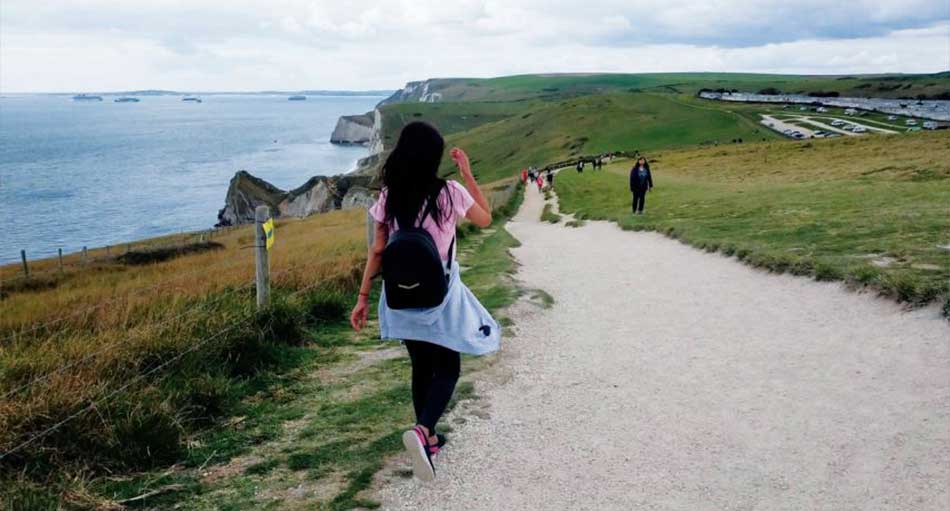
Reopening would help travel industry on its path to recovery (IO Photos)
Dual role for India
India is perhaps uniquely placed as a beneficiary and a benefactor in terms of reopening of borders and the impact on global economy. The country’s economy and notably the travel industry has been amongst the hardest hit in the world in the total absence of any support from the government, despite repeated pleas by the stakeholders.
Thus, the reopening would help the industry go some way on the very long road to recovery. The travel industry is excited about it, that is banking on a huge pent-up demand as millions of travellers have been locked up inside their homes for far too long. “Considering that Covid-19 is a part of our lives now, and we are learning to live with it, the first step is to open borders and the doors to various opportunities that are seen after a crisis. We need to quickly revive international inbound travel and remove all travel and tourism related restrictions which were put in the wake of coronavirus to revive tourism. There is a huge pent-up demand, for domestic, inbound and outbound, as people need to reconnect with people – as relatives, celebrations, business & experiences,” Mayal says.
She adds that the government needs to move rapidly to capture the opportunities in a rejigged tourism world as travel becomes easier and also be able to capitalise on the pent-up demand. “Fulfilling this demand, we need to work more aggressively to make India as an attractive destination & the largest hub. We had earlier lost the opportunity to become the largest hub between the east & west but now as every country is struggling to revive, we need to invest in the time and opportunity lost. India has a huge potential to woo tourism with our multi facets of rich diversified culture, cuisine, heritage, history, along with our pristine & beautiful destinations. No country in the world has so much to offer as India, with its mountains, beaches, hills, valleys and now with better infrastructure & connectivity, there are huge opportunities,’’ says Mayal.
However, for a smooth revival of tourism around the world, it is critical that governments around the world closely coordinate their moves so that travel can become seamless as it was in the pre-pandemic era. “Yes, I believe many countries will and should collaborate and work towards building sustainable tourism. As president of TAAI, I believe in collaborating to build a mutually beneficial environment. I strongly believe we should strengthen bi-lateral relationships and develop regional tourism, regional passports and visas. We have wonderful borders with huge potential, we need to invest and develop this,’’ says Mayal, adding that her organisation has already taken steps in this context.
‘‘TAAI has initiated this by announcing its first international convention post Covid-19 in Sri Lanka in April. We will certainly give our utmost to see we develop mutually beneficial practices for trade and investment. Countries need to have a long-term sustainable model vision. As countries are slowly opening borders, the guidelines and thought processes need to accelerate. TAAI as the premier association will certainly like to be a catalyst to build this growth. We need to together build more trust and better coordination to set effective tourism boosting guidelines with better analysis to be adopted between countries to pave the path of growth,’’ she says.
TAAI is not the only one advocating coordinated reopening of borders. Indeed, various global organisations like the United Nations World Tourism Organisation, IATA and ICAO have been calling for a coordinated and synchronised reopening of tourism and to ease the rules governing travel in a manner to maximise the uptake in global travel at the earliest.











